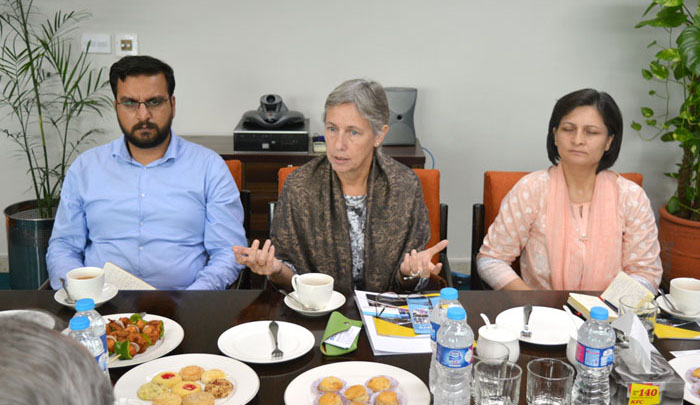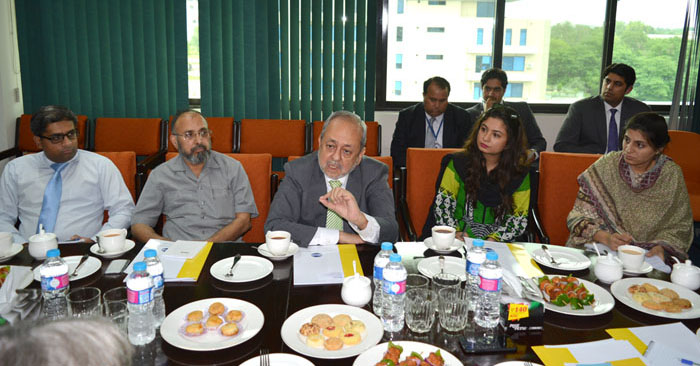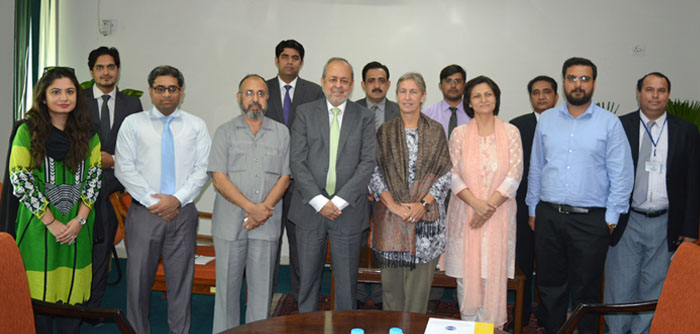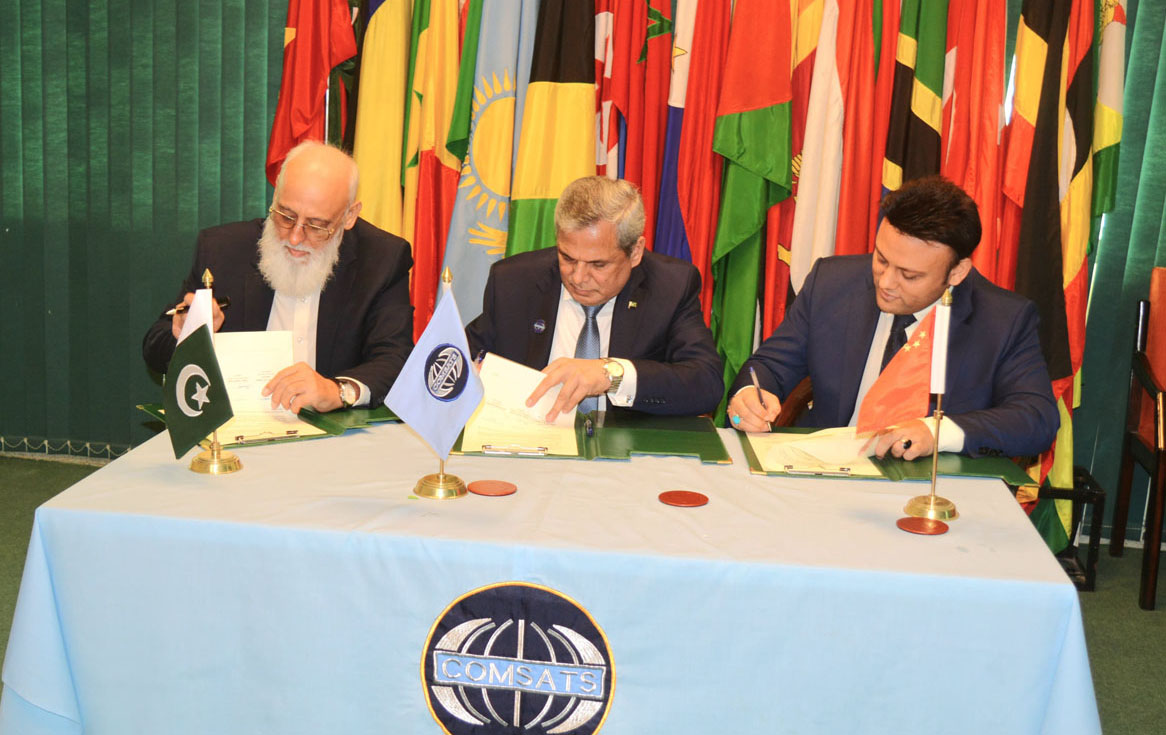A meeting with the country director of the British Council Pakistan, Ms. Rosemary Hillhorst, was held at COMSATS Secretariat on 2nd August 2017. Ms. Hillhorst was accompanied by Ms. Nishat Riaz (Director of Education, Pakistan).
After exchanging pleasantries, the Executive Director COMSATS form ally began the meeting by introducing COMSATS and the main activities and notable achievements of the organization since its inception. While discussing the inception of COMSATS Institute of Information Technology (CIIT), Dr. Zaidi acknowledged and appreciated the role of the British Council in introducing him to prominent higher education professionals in the UK. He underscored his desire for the British Council to, once again, partner with COMSATS in order to establish universities and research centers in our 25 Member States. As such, COMSATS would play an advisory role, liaising with governments to replicate the lessons learned from the CIIT model in other parts of the Global South. Dr. Zaidi also highlighted his upcoming visit of the UK and asked for the British Council’s assistance in setting up meetings and formal introductions with people interested in furthering this project.
ally began the meeting by introducing COMSATS and the main activities and notable achievements of the organization since its inception. While discussing the inception of COMSATS Institute of Information Technology (CIIT), Dr. Zaidi acknowledged and appreciated the role of the British Council in introducing him to prominent higher education professionals in the UK. He underscored his desire for the British Council to, once again, partner with COMSATS in order to establish universities and research centers in our 25 Member States. As such, COMSATS would play an advisory role, liaising with governments to replicate the lessons learned from the CIIT model in other parts of the Global South. Dr. Zaidi also highlighted his upcoming visit of the UK and asked for the British Council’s assistance in setting up meetings and formal introductions with people interested in furthering this project.
Ms. Hillhorst was impressed by the accomplishments of COMSATS, CIIT in particular. She suggested a few people from the British Council’s London office whom Dr. Zaidi could meet in the UK, and extended her team’s assistance in setting up the meetings. Ms. Riaz, who has prior experience working with Dr. Zaidi, suggested that the British Council could contact their country directors in COMSATS Member States and ask them to liaise with governments as well.
Ms. Hillhorst asked a few questions about Dr. Zaidi’s plans for setting up new institutions in other countries, upon which the Executive Director elaborated in his response. He discussed the world university rankings and expressed his desire to have Pakistan and COMSATS’ Member States have at least ten universities in the top 500. He emphasized the ripple effects that CIIT has had within the higher education sector in Pakistan and voiced his commitment towards seeing similar results in other developing countries.
Subsequent discussions also focused on the South Asian region, mobilizing SAARC and using China’s influence within the region to expand the clout of the regional hub. Dr. Zaidi also discussed his recent meeting with the Chinese Minister for Science and Technology, and his desire to work with China on the One Belt One Road project by creating higher education institutions in the parts of the world associated with the project.
Ms. Hillhorst showed interest in COMSATS Centres of Excellence and their focus on particular subject areas, which sparked a discussion about research collaboration between centers. The Executive Director articulated his intent to create an international climate change center in the Global South and the need for funding for the project. Ms. Hillhorst expressed the UK’s shifting policies towards focusing on commonwealth countries, as evidenced by an intergovernmental meeting between members of the commonwealth that is to be held in the UK next year. The Executive Director informed Ms. Hillhorst that there are nine commonwealth countries that are members of COMSATS and there was subsequent conversation about mobilizing networks within the COMSATS’ network in the proceeding plans.
Ms. Hillhorst also inquired about COMSATS’ linkages with international research centers, such as CERN. The Executive Director expressed the shifting policy of COMSATS from an exclusive focus on South-South cooperation towards gradually increasing North-South cooperation on Science and Technology in order to learn from the work being done within developed countries. Additionally, there was some discussion on hosting a mid-year meeting in the UK or in Turkey in order to facilitate interaction between the Global North and South. Ms. Hillhorst expressed the importance of focusing on faculty development and hiring teachers who are PhDs and have teaching experience. Dr. Zaidi endorsed the idea and reaffirmed the need for the British Council’s assistance in working with universities in the UK, and in other countries where higher education is flourishing – particularly South Africa.
The meeting ended on a positive note with the agenda of setting up conversations between Dr. Zaidi and members of the British Council in the UK, and following-up with the British Council Pakistan team upon his return. There were assertions on both sides of establishing an ongoing relationship between the two organizations.








